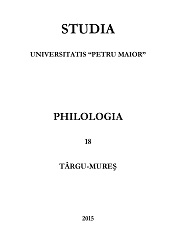Repere teoretice privind mecanismul puterii în imaginarul social
Theoretical Marks upon the Mechanism of Power inside the Social Imaginary
Author(s): Gabriela ChiciudeanSubject(s): Romanian Literature, Sociology of Culture, Translation Studies, Theory of Literature, Sociology of Literature
Published by: Editura Arhipelag XXI
Keywords: social imaginary; power; the problem of the centre; identity/alterity;
Summary/Abstract: The problem of power is to be found at the core at the social imaginary, being a necessity for all societies, generating the invention and the imagination of legitimacy that need to be given to power. Every power is a force, but it has to become legitimate. Circumstances and events that legitimate a power are equal as importance with the imaginary that created them and with the representations around the power. The social institutions, together with the politic, economic, cultural or any other type of institutions, participate to the symbolic universe around them and form their own functioning frame. Due to its representations and symbols, the social imaginary is a real and efficacious part from the mass control mechanism. The social representations express a state of the social group; translate its actual structure, the thinking of its members and their reactions to various events, exterior danger or violent burst. The problem of establishing The Centre is highlighted inside the relation between two identities, when, starting from the Own Centre and the Other Centre, the real Reference centre is designated, as the Centre of the most powerful one, to which the Weak centre will conform and accept as source of universal organisation. Once recognised, the power protects its legitimacy against the Other and establishes its own decor of social life, represented by emblems, ornaments, accessories etc. The social produces, crossing a network of denotations, numerous marks to help the individual communicating and designates its relations with the institutions, The social life produces values, norms and representation systems that adapt and fix the representations. Thus, there are collective codes depending for expressing needs and expectations, hopes and fears. The importance of the symbols and of the representations differs from one type of power to another.
Journal: Studia Universitatis Petru Maior. Philologia
- Issue Year: 2015
- Issue No: 18
- Page Range: 74-82
- Page Count: 9
- Language: Romanian

